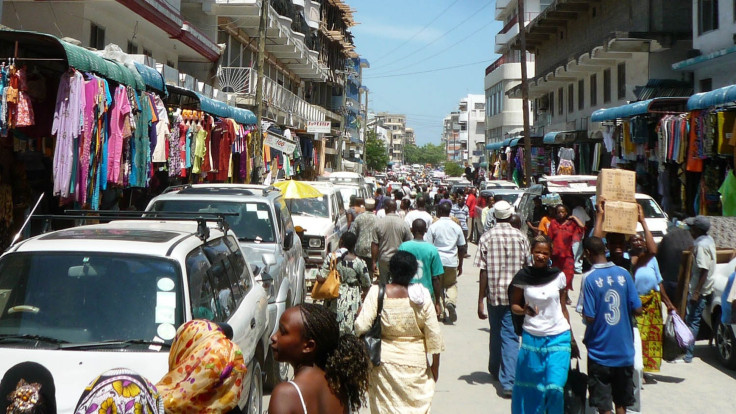Tanzania's Controversial Mobile Phone Tax Could Grow Revenues, At The Expense Of The Poor

A controversial new tax policy in the East African country of Tanzania could have an outsized effect on its low-income citizens -- the very people the tax revenues are intended to benefit.
According to a finance bill amendment passed in June, the government is imposing a monthly tax of 1,000 Tanzanian shillings ($0.62) on all SIM card users in the country. It's also clamping down on unregistered users to limit tax avoidance.
The new levy is a touchy subject because mobile phone services are booming in Tanzania, as they are across all of Africa.
Research from the World Bank and the African Development Bank indicates that 650 million people on the continent are using mobile phones, and not just for social calls. One of the most popular services associated with SIM cards is mobile banking, which allows users to store and send money via their phones instead of using a traditional bank account.
These services have become a lifeline for the poor in Tanzania, and critics of the new tax argue that it will hurt these vulnerable users.
The Mobile Operators Association of Tanzania claims the government didn't involve them in discussions before the bill was passed. It argues that out of the estimated 22 million SIM card users in the country, 8 million spend less than $0.62 -- the monthly tax -- each month for the service, which means that their mobile phone costs will more than double once the tax is collected.
This could effectively take the service out of reach of millions of low-income Tanzanians, which will also hurt the country's growing telecom sector. But, state officials argue that the tax will help Tanzania to become more self-sufficient.
“The intention of the government was to ensure that every person owning a mobile phone contributes to the country’s development and not to deny them access to communication services as claimed by mobile operators,” Saada Mkuya Salum, a deputy finance minister, told the East African news outlet, IPP Media.
The vast majority of Tanzania's 47 million people don't pay taxes regularly.
The government collected taxes totaling about 15.7 percent of GDP in fiscal year 2011/12, according to World Bank data, leaving a gap of more than $3 billion between revenues and public spending. Those numbers are especially dire considering Tanzania's ambitious plans to spur development and provide better public services for the poor.
The Tanzanian government doesn't suffer badly from corruption or mismanagement -- unlike many of its neighbors, but it does face endemic shortages of funds due, in part, to the country's lack of natural resources.
Nearly one-third of the population lives in poverty, though that percentage is on the decline and the economy is expected to grow by 7 percent this year. Tanzania has a GDP of more than $28 billion and is kept afloat by tourism revenues, gold exports, agriculture and foreign aid.
Ramping up tax collection would be an effective way to increase the government's revenues, and that general idea has slowly been gaining support in Tanzania.
Regional governments are on board with the SIM tax levy and have implemented similar measures of their own. Uganda recently proposed a tax on mobile money transfers, and Kenya has called on fellow members of the East African Community, which includes Tanzania, to get tough on unregistered SIM card users.
Still, domestic opposition to the plan remains strong, with many calling the tax too rudimentary because it doesn't take usage levels into account.
Critics argue that the government should find a way to make the tax more equitable to poor Tanzanians for whom mobile phones have become invaluable, even if the revenues do eventually go to development programs that spur broad-based growth.
© Copyright IBTimes 2024. All rights reserved.





















